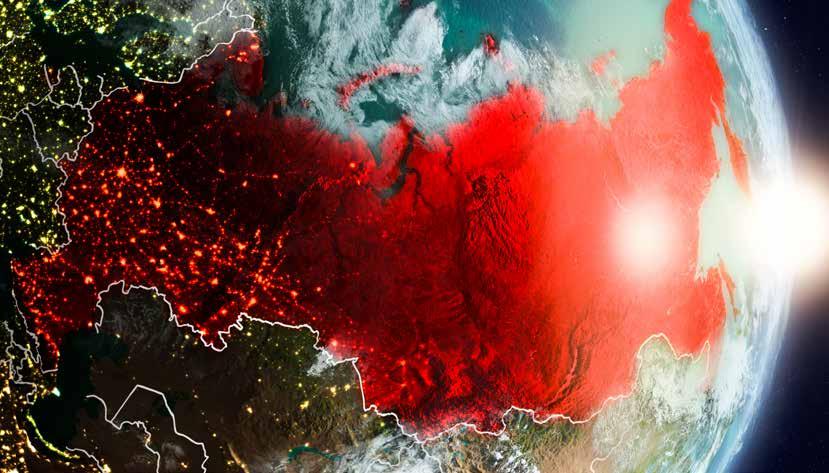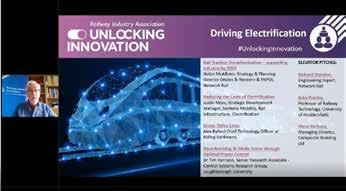40
SUSTAINABILITY & ENVIRONMENT
DAVID SHIRRES
I
n May (issue 184), we reported on the Railway Industry Association (RIA)’s first on-line Unlocking Innovation event. These events have now been running for ten years and aim to inform suppliers about industry challenges and help them respond by encouraging collaboration with research centres such as the UK’s Rail Research and Innovation Network (UKRRIN). Holding them on-line does not detract from the aim of informing suppliers. Indeed, viewing the event from the comfort of your own home potentially increases attendance, although the lack of exhibition spaces and the opportunity to network reduces opportunities for new collaborations. In a post-Covid world it will be interesting to see how many, if any, of these events are held online. For now, however, such online events are certainly worthwhile. RIA’s latest Unlocking Innovation event in October was “Routes to Zero Carbon Rail”, held in partnership with Network Rail, UKRRIN and RSSB. Held in October, 29 presentations were given over four days, each of which had different themes – Driving Electrification on Monday, Decarbonising self-powered rolling stock (Tuesday), Zero Carbon Operations, Maintenance & Renewal (Wednesday) and Generation Decarbonisation to finish up on Thursday.
The bigger picture Any discussion of decarbonisation invariably turns to how trains should be powered. Whilst this is indeed the main problem, much more needs to be considered if all parts of the industry are to decarbonise. It was therefore good to hear on wider issues and from outside the industry. Decarbonising telecoms was the subject of Howard Lungley’s presentation on the approach taken by British Telecom, which consumes one per cent of UK’s electricity, has 6,500 buildings and 30,000 vehicles. He stressed that the number of people that need to be involved should not be underestimated. Although this was hard work, he felt that once there was a critical mass of support this becomes self-sustaining.
Rail Engineer | Issue 187 | November/December 2020
RIA’s Richard Jones introduces the event. Efficient electricity generation and transmission will be an essential part of a zero-carbon future. In his presentation, Dr Will Drury explained how UK Research and Innovation (UKRI) is supporting the development of clean and resilient PEMD (Power Electronics, Machines and Drives) supply chains. Since 2019, UKRI has invested £80 million to support the growth of companies in this sector. The construction sector also has a big role to play. It is, for example, responsible for 60 per cent of UK waste. In their presentation, Network Rail’s Janet Dunnett and AECOM’s Philip Charles made the case for a national REM (Resource Exchange Mechanism) to encourage the widespread re-use of materials in construction. They explained what was needed for the exchange of surplus materials within and between companies and how this would deliver a wide range of benefits. Chris Hayes explained what Skanska was doing to reduce its current 350,000 tonnes of CO2 emissions to zero by 2045. This included identifying carbon hotspots in the supply chain and the ranking of construction methodologies by both cost and carbon.










